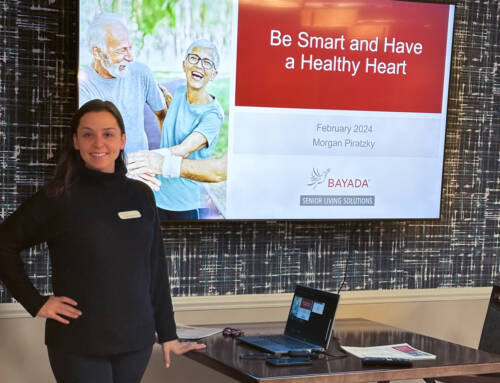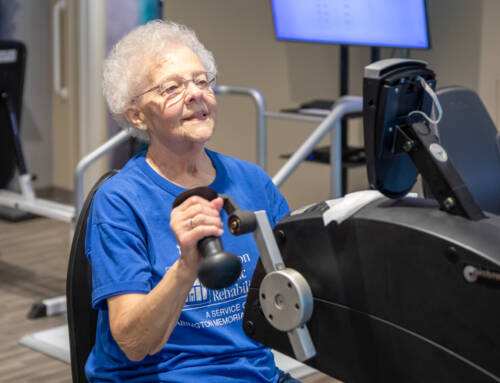Insomnia, headaches, racing heartbeat and depression could all be signs of stress in adults and senior citizens, said Dr. Lenny Roberts, a Roxborough chiropractor who spoke with staff and residents recently at Masonic Village at Lafayette Hill.
Stress, also referred to as a “silent killer,” can lead to high blood pressure and heart disease, the leading cause of death in men and women. Stress-related events are the number one trigger of heart attacks, Lenny said. Every 33 seconds, someone in the United States dies from cardiovascular disease.
“Your health is like a piggy bank,” he said. “You have to deposit more than what you withdraw. Life is a balance. You don’t need to be perfect, but you want to stay in the game. Stressors can build up over time if you continue to make more withdrawals than deposits.”
Lenny is the owner of Summit Spine and Wellness in Philadelphia and is currently the Temple University football team chiropractor. He has also worked with the Philadelphia 76ers.
He said stress can be good (exerting stress on your muscles when you exercise, creating a feeling of productivity) and bad (causing anxiety, confusion and mood swings). How we respond to stress is equally important. When stress is temporary, the stress response is usually beneficial, as it helps you react to the situation and build resilience. When stress festers for a long time, unaddressed, it’s linked to mental and physical health issues, even raising your risk for chronic conditions like heart disease.
There are three types of stress: emotional (watching negative news on TV, sitting in traffic), chemical (caused by processed or fast food, caffeine or alcohol) and physical (chronic injuries or a car accident).
Activity, meditation, massage and prayer can all help with stress, as well as clean eating and staying fit. How you hold your body can also have a huge influence on your health, Lenny said.
Bad posture can increase tension in the body and lead to stress. Posture controls the function of the heart and lungs.
“Cell phones are the worst,” he said. “Ninety-nine percent of the population hunches over to use their phones. Also, sitting is the new smoking. The longer you sit at a desk, the shorter your life expectancy. We are designed to move.”
Lenny encouraged employees and residents to do yoga, walk, swim or visit the Wellness Center to develop an exercise and fitness plan. You should also set an alarm clock on your phone to move every 15 minutes.
“We don’t get to decide how or when we will die, but we have choices for how we live,” he said. “How you hold your body is one of them. It’s important to keep active and mobile.”




